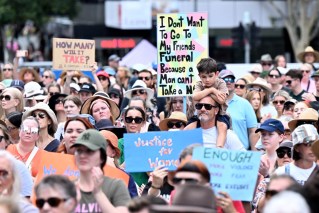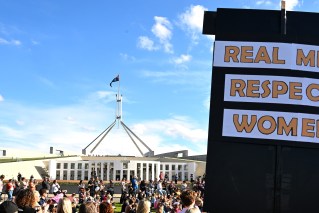Illness the jab won’t cure: Warning of mental health crisis when borders re-open
The magic 80 per cent vaccination rate may trigger the opening up of the nation, but would also mark the emergence of a national mental health crisis, experts are predicting.


Mental health researchers say stress and fears about the future caused by the pandemic meant there needed to be broader thinking and leadership about Queensland’s recovery. (Image: Emma Simpson/Unsplash)
A team of researchers from University of Queensland said higher vaccination rates and the recovery of business and tourism would not signal the end of the impacts of the COVID pandemic.
UQ Social Psychology Professor Jolanda Jetten said new research showed the full impacts of the pandemic on Queensland communities were only starting to be realised.
“Mental health is the emerging crisis,” Jetten said.
“We know the mental health impact is bad at the moment. But we haven’t seen the peak yet of the crisis that COVID has triggered.
“Mental health problems don’t stop when people get vaccinated. We are going to have a bigger problem in a year, two years’ time, compared to what it is now.”
Jetten, who is among a panel addressing the Queensland pandemic recovery presenting at the Gold Coast later this week, said the stress and fears about the future caused by the pandemic meant there needed to be broader thinking and leadership about Queensland’s recovery.
“When I’m talking about recovery, it’s much broader than getting tourists back into the Gold Coast and getting economic expenditure and business going again,” Jetten said.
“If you are only to look at it through a very narrow lens like getting tourists back to the Gold Coast, it is unlikely to lead to positive outcomes.
“You also need to have a workforce that’s well, where stress is at manageable levels and people’s mental health is good. Otherwise, you’re dealing with stress, a lot of sick leave, and where people are no longer prepared to take risks because there’s so much uncertainty.
“What we are seeing in our surveys at the moment is uncertainty about the future. That stress itself makes people reluctant to try things and take risks.
“You get in a vicious cycle, and you won’t get the recovery that you’re looking for because there’s nothing that people are moving towards that looks reliable and stable. If there’s a general sense of unease and being scared about the future, people are not going to make the investments they need to get businesses and employment back up.”
She said mental health services were already stretched before the pandemic, but individuals and communities needed greater support.
“We know from the data that the communities that come out best from COVID are those that had built very strong social cohesion before the pandemic.
“In that way it is similar to the bushfires. It is not how much a community has been destroyed, but what kind of community it was before it was destroyed that influences the rebuilding.
“We are trying to map that out and understand the factors that predict whether you get good rebuilding and whether you get a recovery where great things that can come out of it, or if it will be a struggle.”
She said communities across Queensland needed a new, holistic response to successfully rebuild.
“Of course there will be people who will be relieved and there will be people for whom life will resume as it was. But there will be quite a lot of people who have never had to deal with mental health issues who suddenly have found themselves really struggling in the last year and a half and that’s not suddenly going to be over,” Jetten said.
“Their life has been changed in profound ways. This is not just affecting a few people, it is affecting whole communities.
“This is an urgent issue that requires more than just a few more resources, it requires a new approach.”












